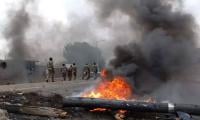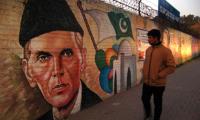World Press Freedom Day, marked by Unesco since 1993, was observed around the world this week. According a report by Freedom House, press freedom in 2015 came down to a 12-year low. Around 85 percent of the world’s countries remain with limited or no press freedoms while only 13 percent of countries enjoy what can be considered basic press freedoms. Curbs on the freedom of the press have increased in a number of countries, with Egypt, Turkey and Bangladesh witnessing increasing threats and violence against journalists. The theme for this year’s Press Freedom Day was access to information for all, illustrating problems journalists face even in developed countries with Japan coming under the spotlight for increased restrictions put in place since 2013.
Over the last decade, Pakistan has been consistently ranked as the most dangerous place for journalists; 57 journalists have been killed in the country since 1992. Although this year no journalist from Pakistan is among those who have been killed in the line of duty around the world, this does not mean that our situation is improving. In the face of direct censorship, prosecution and threats the media has begun to self-censor as well. Pakistan’s journalists are caught between the various tensions and power struggles in the country. Reportage from Khyber Pakhtunkhwa and Balochistan has been at an all-time low. The Pakistani government has also shown no inclination towards pursuing key cases of targeted and slain journalists. This year, both the Hyderabad and Karachi Press Clubs were attacked by mobs for only obeying government orders to not cover the execution of Mumtaz Qadri on prime time. The government abandoned a media that was only following orders, which raises the question of who media personnel can trust for safety. With no-go areas, a new cyber-crime bill that seems to advocate for digital censorship and threats to media businesses, journalists in Pakistan are up against terrible odds. As they continue to work in dangerous conditions, efforts must be made to create greater awareness about the need to protect them more effectively.
Christians and other minority groups face discrimination when it comes to employment, housing, education and security
PTA’s rationale is to monitor VPN traffic to ‘address security concerns’, but in reality, this could lead to...
Deaths due to militant attacks have now soared well past 1000 mark
Dialogue between government and opposition is cornerstone of any functioning democracy
PTA’s says foreign investment in local telecom sector has been declining despite jump in broadband subscribers
Cumulative impact has been to make jobs of those in industry today harder and riskier than ever







